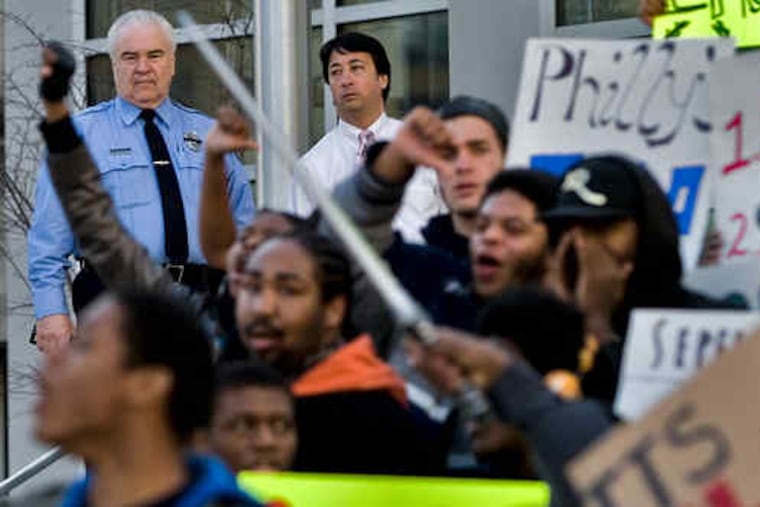Ackerman and students to meet on reform plans
TROUBLED BY a reform plan that calls for shutting failing public schools and reopening them under new management, Philadelphia high-school students will air their concerns today during a 4:30 p.m. meeting with schools Superintendent Arlene Ackerman.

TROUBLED BY a reform plan that calls for shutting failing public schools and reopening them under new management, Philadelphia high-school students will air their concerns today during a 4:30 p.m. meeting with schools Superintendent Arlene Ackerman.
The students, members of the Philadelphia Student Union activist group, yesterday afternoon protested Ackerman's five-year, $50 million "Imagine 2014" plan.
Standing on the steps of the district's North Broad Street headquarters, the students said that they oppose reform models that would allow charter schools or other outside management organizations to run schools.
A reform effort in Chicago Public Schools which does this has resulted in lower-income students being pushed out of their schools, said the students, who mocked that plan in a skit.
Any reforms that are used, they said, should first be approved by school communities.
"It's Not A Choice If We Have No Voice," read a sign held by a male student who sported a thick strip of tape over his mouth.
"They say it's innovation, we say it's segregation," chanted the students, who represented at least nine high schools.
"It's 55 years later after Brown v. the Board of Education, so now they're not trying to segregate schools by race, they're trying to segregate schools by money, by social standard, by how much money you pull down," said Khalif Dobson, 16, an 11th grader from West Philadelphia High.
Charelle Reed, a 12th grader from Overbrook High, praised plans to boost the number of counselors and put Student Success Centers, which help students apply to college, in each high school, but she said that turning to charter schools is not the answer.
"There are some real equity issues when it comes to charter schools," she said. "Charters have been known to push out English-language-learning students, special-needs students, along with poor students."
Since Ackerman announced details of her plan last week, students and education advocates have buzzed about which schools would be targeted for reform and what reform models would be used.
A question-and-answer sheet released by the district yesterday indicates that it will begin to select a pool of qualified school operators in the spring.
Tomas Hanna, the district's chief of school operations, said that the reform plan is "not about shipping kids out, it's not about lotteries. It's about making their local neighborhood school the best possible school it can be."
He said that among reform plans being studied are those in Chicago, Boston and Los Angeles. In addition, he said, successful district schools could also be used as reform models. *